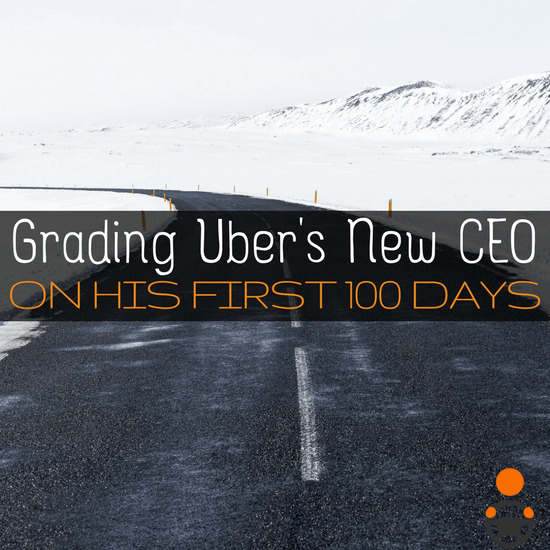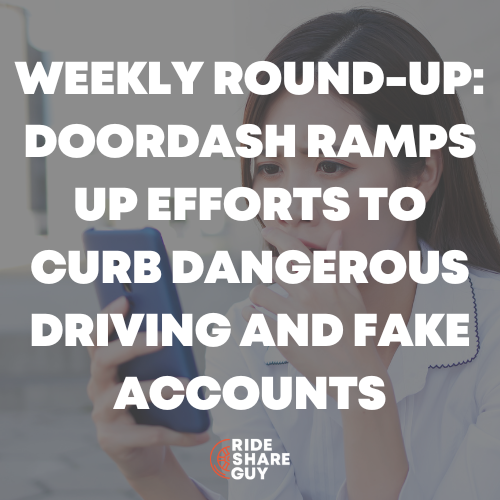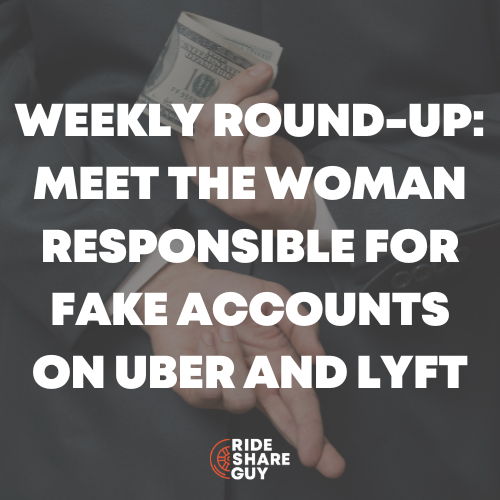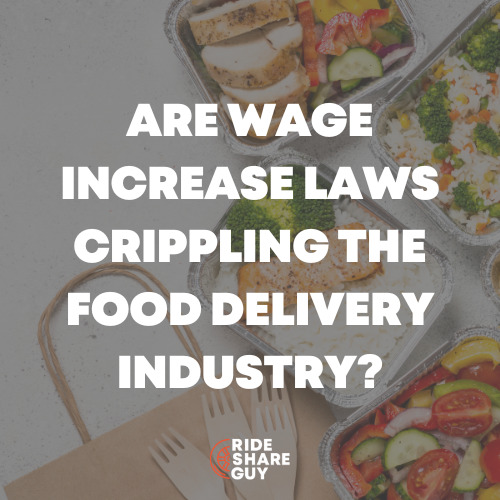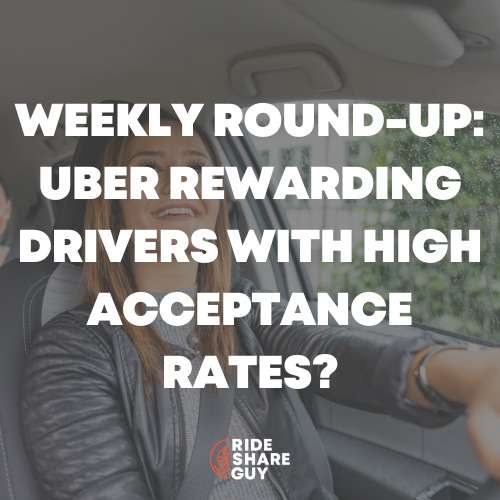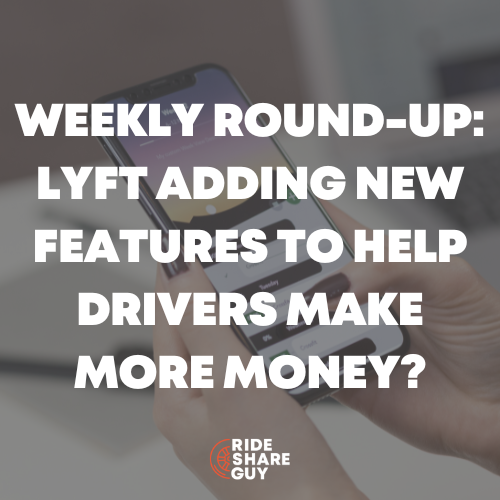It’s been a few months since the new Uber CEO, Dara Khsrowshahi took over from Travis Kalanick but has much changed? Today, senior RSG contributor John Ince shares his thoughts on how Uber’s new CEO is doing, for Uber and for drivers.
Recently I gave a ride to a person who works for Heidrick and Struggles, the headhunting firm that conducted the search for Uber’s new CEO, Dara Khosrowshahi. I asked my passenger obvious question – “Did DK realize what he was getting into?”
“Oh he knew. He knew exactly what he was getting into,” the passenger replied.
Indeed, running Uber in these tough times is a Herculean task. Given that it’s now been just over 120 days since DK assumed his new role, perhaps it’s now time to take stock of how he’s been doing. Let’s take a look at the nature of his influence and break it down into categories to try to get a better feel for how Uber’s new CEO has been doing on the job.
1. DK’s Influence on Uber’s Corporate Culture
Performance Appraisal: Dara Khosrowshahi’s big win was consummated the last week of 2017 when the Softbank deal was finalized. While most early investors and early employees were celebrating it as a liquidity event, the more lasting impact was that it settled the ongoing boardroom wars that had been plaguing the company.
But that’s not all DK has done for the corporate culture. He’s also set the tone for a new improved Uber with both words and action. He’s been saying all the right things. Here’s a sample of what he wrote to Uber employees on November 8, 2017, two months after he was installed as CEO,
I’ve spent my first two months as Uber’s CEO meeting our teams around the world, dealing with a few firefights, and experiencing firsthand the entrepreneurial culture that Uber is known for. It’s that forward-leaning, fearless approach that has underpinned much of Uber’s success and has attracted many employees, including me, to the company.
But it’s also clear that the culture and approach that got Uber where it is today is not what will get us to the next level. As we move from an era of growth at all costs to one of responsible growth, our culture needs to evolve. Rather than ditching everything, I’m focused on preserving what works while quickly changing what doesn’t. This is the approach we’ve taken with our new cultural values, which we announced to employees today. Our values define who we are and how we work, but I had heard from many employees that some of them simply didn’t represent the kind of company we want to be. For instance, “toe-stepping” was meant to encourage employees to share their ideas regardless of their seniority or position in the company, but too often it was used as an excuse for being an asshole.
I feel strongly that culture needs to be written from the bottom up. A culture that’s pushed from the top down doesn’t work, because people don’t believe in it. So instead of penning new values in a closed room, we asked our employees for their ideas. More than 1,200 of them sent in submissions that were voted on more than 22,000 times. We also held more than 20 focus groups with representatives from our Employee Resource Groups and our international offices. There were some common themes: many people liked how the spirit of the previous values encouraged problem-solving and speed, but they wanted to see more around inclusion, teamwork and collaboration. They also wanted to make clear that we will put integrity at the core of all our decisions, and that we’re unafraid to admit mistakes when they happen. We’re also calling these cultural norms, rather than values, because we fully expect them to evolve as Uber continues to grow. …
Uber’s Cultural Norms
We build globally, we live locally. We harness the power and scale of our global operations to deeply connect with the cities, communities, drivers and riders that we serve, every day.
We are customer obsessed. We work tirelessly to earn our customers’ trust and business by solving their problems, maximizing their earnings or lowering their costs. We surprise and delight them. We make short-term sacrifices for a lifetime of loyalty.
We celebrate differences. We stand apart from the average. We ensure people of diverse backgrounds feel welcome. We encourage different opinions and approaches to be heard, and then we come together and build.
We do the right thing. Period.
We act like owners. We seek out problems and we solve them. We help each other and those who matter to us. We have a bias for action and accountability. We finish what we start and we build Uber to last. And when we make mistakes, we’ll own up to them.
We persevere. We believe in the power of grit. We don’t seek the easy path. We look for the toughest challenges and we push. Our collective resilience is our secret weapon.
We value ideas over hierarchy. We believe that the best ideas can come from anywhere, both inside and outside our company. Our job is to seek out those ideas, to shape and improve them through candid debate, and to take them from concept to action.
We make big bold bets. Sometimes we fail, but failure makes us smarter. We get back up, we make the next bet, and we go!
Grade: A –
What DK can do to improve: Establishing the right set principles is fundamental to everything a company does. These principles are a distinct improvement over the “break things and move fast” mindset of principles he inherited from TK’s regime.
For context, under Travis-led Uber, there were 14 “values”, including “customer obsession”, “make magic” and “superpumped.” According to Quartz, while DK kept some of TK’s values, he “jettisoned others are no longer representing Uber or the company it aspires to be.”
I’m not sure DK can say anything more than what he already said. The new rules are good rules. Now he has to make sure those rules are being followed. It’s one thing to lay down a new law. It’s quite another to define what the right thing is when faced with deep and complex moral dilemmas. That’s the bigger challenge that’s facing DK as he goes to work each morning.
2. DK’s Influence on Uber’s Driver Experience
Performance Appraisal: The most significant changes announced as part of Uber’s 180 days of change, came after DK was installed as CEO. Most of the changes had been in the works and DK probably tweaked them and accelerated their implementation.
I’m going to give DK the benefit of the doubt here and say he’s been a definite plus for drivers. With that said, it’s still pretty clear that Uber considers drivers to be second-, if not third- tier. The situation isn’t quite as stark as when TK was CEO, but I would still characterize Uber’s relationship with drivers as exploitive because the pay/status disparity between being an Uber employee and an Uber driver is still so stark. That has to change if Uber is going to survive over the long haul.
Related: More on Uber’s 180 Days of Change
Grade: B
What DK can do to improve: This may seem counter-intuitive, but I believe the most important thing DK can do to improve the driver experience has nothing to do with the drivers themselves. The best thing he could do would be to require all Uber employees to complete 20 rides as a driver every month.
Right now, most employees simply don’t understand all the complexities and subtleties of being a good driver. They don’t understand the complex interactions with passengers. They don’t understand the frustrations of dealing with unexpected challenges, traffic issues and everything else that comes with this experience. Uber employees don’t understand the de-humanizing effects of their automated emails and shifting incentive structures.
In short, they lack empathy for drivers. Getting behind the wheel for a few hours each month would work wonders for the company – giving everybody who works there a clearer picture of what the nature of this challenge is.
3. DK’s Influence on Uber’s Customer / Driver Support
Performance Appraisal: If you read Jay Cradeur’s excellent post Uber Deactivated My Driver Account for No Reason, you really have to wonder whether DK is doing anything to upgrade Uber’s customer support. Drivers still get predominantly automated responses, which may or may not be relevant to what the issue they raise.
My personal experience with customer support recently has been better. I got a response within minutes that actually addressed the problem. Different drivers have different experiences. I do see evidence that DK is giving customer/driver support a higher a priority than TK did. I’m hoping that’s not a mirage.
Grade: B-
What DK can do to improve: DK needs to put more actual human beings in customer support and train them better. This is, of course, a matter of economics for the company. Remember, Uber now has a work force of over 2 million drivers around the globe. That’s a huge challenge.
4. DK’s Influence on Uber’s Brand/Public Image
Performance Appraisal: DK has been trying to seize control of the public narrative about Uber, but trying to control that narrative is a bit like trying to stop a runaway train. The media’s impression of Uber as the “bad boys of tech” is so deeply ingrained that most reporters and editors are deeply cynical about any attempt to recast the image.
But it does appear that DK has been more nimble than TK in getting out in front of a story – at least giving the media a counter narrative, should they choose to seize it.
Here’s an example. A few weeks ago a story broke about the Jacobs letter revealed in the Waymo lawsuit trial. It was a pretty damning letter, but even before that story broke, Uber’s team was ahead of it with this story, which basically suggests what happened under TK is history and now it’s a new regime at Uber – which hopefully is true. Here’s the spin the DK regime put on the actions of the TK regime:
“Uber CEO says he banned employees from using secure messaging apps like Wickr, Telegram (Mashable) – Uber’s new CEO has been trying to clean-up the mess cofounder Travis Kalanick left behind. One sweeping change was a total crackdown on secure messaging apps when it comes to business matters.
CEO Dara Khosrowshahi tweeted Wednesday that he forbid employees from using apps like Wickr and Telegram shortly after he joined the company. He shared that nugget of information while Uber’s top lawyer is currently testifying on allegedly receiving stolen proprietary information from Google’s Waymo. Wickr, like Snapchat, allows ephemeral messaging so that the messages disappear and are not stored on the device. It seems obvious that employees should not discuss “Uber-related business” in secure channels where Uber management and judges (in case they were to be sued) could not access that information. Of course, that’s not how Kalanick is known to operate, and it’s clearly not how he helped build Uber into a tech giant. …
Grade: B
What DK can do to improve: Just keep doing the right thing – and hopefully over time the media will come to recognize things are different now.
5. DK’s Influence on Uber’s Financial Performance
Performance Appraisal: Uber’s financial performance remains dismal, but it’s too soon for DK to be held accountable for the billion dollar losses that continue to be reported. (Nearly $1.5 billion in Q3 and 2.8 billion loss for FY 2016.)
Related: Follow the latest on Uber (and Lyft) here.
This is where DK’s attention is going to be focused in coming months. He’s made a firm public commitment to go public before the end of 2019. This essentially gives him two years to put Uber’s financial house in order.
That’s also the amount of time I would estimate Uber has before they run out of cash at current run rates. Without access to Uber’s financials, none of us outsiders can say exactly how much cash Uber has on hand. But I’m betting DK would not have made his commitment to the 2019 IPO unless he was pretty confident of their cash position up until that point.
Grade: Insufficient Information
What DK can do to improve: DK needs to finally face the huge elephant standing over there in the corner of the room – the fact that they’re offering their service at well below market rates.
Yes, DK is caught between a rock and a hard place. For the remaining investors to realize a gain on their investment, DK has to start showing a profit, or at least be on a credible path to profitability leading up to the 2019 IPO.
If fares stay the same, the relationship with drivers is a zero sum game. If Uber wants to make more in profit, it has to come out of the pockets of the drivers. The only way out of this trap is for DK to raise fares.
With competition coming now not just from Lyft, but also from Didi, Ola, Google/Alphabet, GM, and Tesla… raising fares would be a huge risk. Uber is already losing market share. DK has to demonstrate leadership on this issue – market leadership.
By increasing fares he not only will improve Uber’s bottom line, he’ll also be vastly improving driver morale. Yes, it’s a risk. Uber may lose market share. That’s a risk they have to take. They can’t continue to lose billions of dollars a year indefinitely, especially if they want to be taken seriously in public markets.
Start increasing fares now. Do it incrementally so it’s not a huge blow to passengers who have gotten used to lower fares. The sooner DK faces up the this reality, the better it will be for him, for the company and for the drivers.
Overall Grade: B+
What do you think? What grade would you give DK for his first 120 days in office? What else can DK do to improve his job performance?
-John @ RSG
